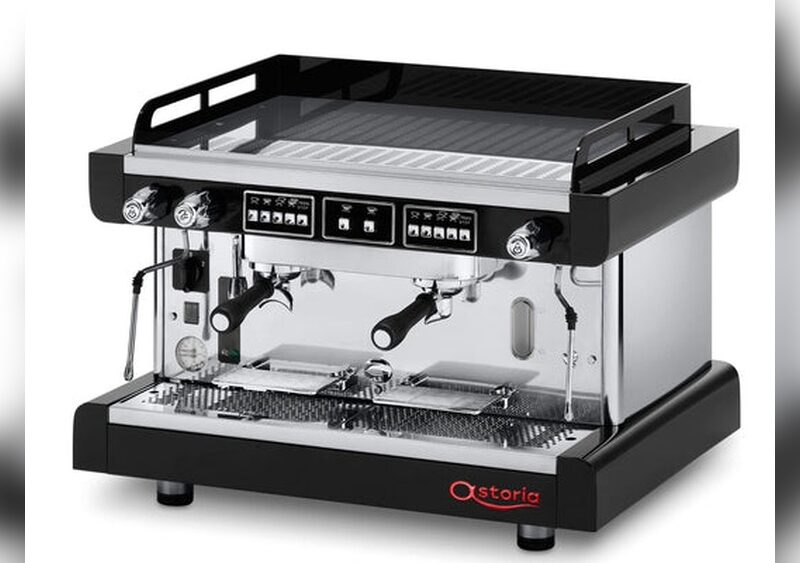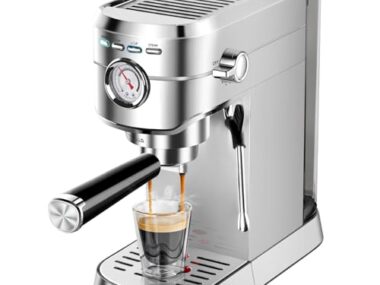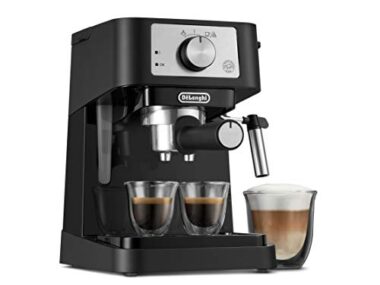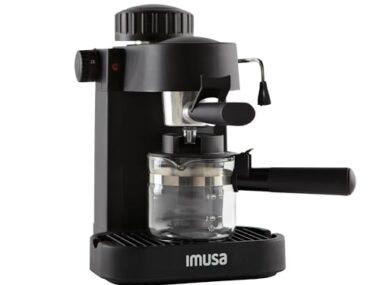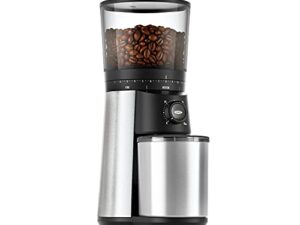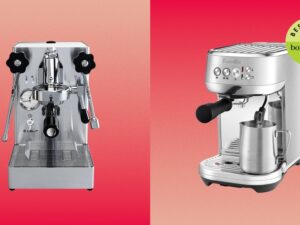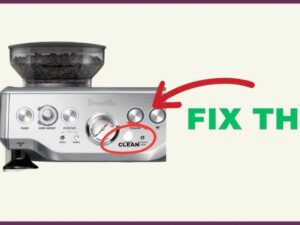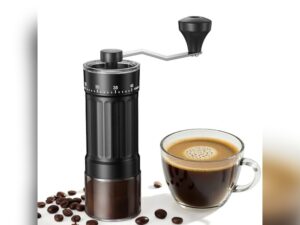If you’re setting up a café, restaurant, or any business where great coffee matters, one question is probably on your mind: how much does a commercial coffee machine cost? Choosing the right machine isn’t just about the price tag—it’s about finding the perfect balance between quality, durability, and your budget.
You want a machine that delivers excellent coffee consistently without breaking the bank. You’ll discover the real costs behind commercial coffee machines, what factors influence their price, and how to pick one that suits your needs perfectly. Keep reading to make a smart investment that keeps your customers coming back for more.

Credit: procoffeegear.com
Price Range Of Commercial Coffee Machines
Commercial coffee machines vary widely in price based on features, capacity, and brand. Understanding the price range helps businesses choose machines that fit their budget and needs. The cost divides into three main categories: entry-level, mid-range, and high-end models. Each category offers distinct benefits and price points.
Entry-level Models
Entry-level commercial coffee machines cost between $1,000 and $3,000. These machines suit small cafes and offices with moderate coffee demand. They offer basic functions like single or double espresso shots. Maintenance and repairs are simple and affordable. These models often have smaller water tanks and fewer programmable options.
Mid-range Options
Mid-range machines usually range from $3,000 to $10,000. They provide more features and better build quality. These models support higher coffee output and faster brewing times. Businesses with steady customer flow find these machines reliable. Programmable settings and touchscreen controls become common in this range. Many models offer built-in grinders and milk frothers.
High-end Machines
High-end commercial coffee machines start around $10,000 and can exceed $30,000. These machines suit busy cafes, restaurants, and hotels. They deliver consistent quality with advanced technology and large capacity. Features include multiple boilers, precision temperature control, and automatic cleaning systems. High-end models often come from premium brands with strong warranties and support. These machines represent a significant investment but boost efficiency and coffee quality.
Factors Influencing Costs
The cost of a commercial coffee machine varies widely. Several key factors influence the price. Understanding these factors helps make a smart purchase. Each aspect affects the machine’s price and value.
Machine Type And Features
Different types of coffee machines cost differently. Espresso machines, bean-to-cup, and pod machines vary in price. More features increase the cost. Features like grinders, milk frothers, and digital controls add value. Simple machines cost less but offer fewer functions.
Brand And Build Quality
Brands with strong reputations often charge more. High build quality means longer machine life. Durable materials and parts raise the price. Trusted brands also offer better customer support. Investing in quality saves money on repairs later.
Capacity And Size
Larger machines with higher capacity cost more. Machines serving many cups per hour need bigger boilers. Size affects installation space and price. Small cafes need compact machines, costing less. Large businesses require bigger machines with higher output.
Types Of Commercial Coffee Machines
Commercial coffee machines come in various types. Each type serves different business needs. Choosing the right one affects cost and coffee quality. Understanding these types helps to make a smart decision.
Espresso Machines
Espresso machines brew coffee by forcing hot water through finely ground beans. They offer precise control over brewing. These machines are perfect for cafes and restaurants. They require some skill to operate but deliver rich and strong coffee. Prices vary widely based on size and features.
Bean-to-cup Machines
Bean-to-cup machines grind coffee beans fresh for every cup. They combine grinding, brewing, and milk frothing in one unit. These machines are easy to use and fast. Ideal for offices and small cafes that want convenience. They typically cost less than high-end espresso machines.
Pod And Capsule Machines
Pod and capsule machines use pre-packaged coffee pods or capsules. They are simple, clean, and quick to operate. Great for places with low coffee demand or limited space. Coffee variety depends on pod options available. These machines usually have lower upfront costs but higher ongoing pod expenses.

Credit: procoffeegear.com
Plumbed Vs Reservoir Machines
Choosing between plumbed-in and reservoir commercial coffee machines affects your cost and convenience. Both types serve coffee well but differ in water supply and setup. Understanding these differences helps in selecting the right machine for your business needs.
Advantages Of Plumbed-in Machines
Plumbed-in machines connect directly to the water line. They offer a constant water supply without manual refilling. This suits busy cafes or offices with high coffee demand. These machines provide consistent performance during peak hours. They reduce downtime because water is always available. Plumbed-in models often have larger capacities. This means fewer interruptions and smoother operation. They also tend to have advanced features for professional brewing.
Benefits Of Reservoir-based Machines
Reservoir machines use a removable water tank. They do not require plumbing, which lowers installation costs. These machines are flexible and easy to move. Reservoir machines work well in small spaces or temporary locations. They are simpler to operate and maintain. Refilling the tank is quick and straightforward. Reservoir machines usually cost less upfront. They are ideal for low to medium coffee volume settings.
Installation And Maintenance
Plumbed-in machines need professional installation. Plumbing must meet local codes and standards. This adds to initial setup expenses. Maintenance includes checking water lines and filters regularly. Reservoir machines are easier to install, often plug-and-play. Cleaning involves removing and washing the water tank. Both machine types require regular descaling. Proper upkeep extends machine life and maintains coffee quality.
Additional Costs To Consider
Buying a commercial coffee machine involves more than just the sticker price. Several extra costs can affect your budget. These costs ensure your machine works well and lasts long. Understanding these expenses helps you plan better and avoid surprises.
Delivery And Installation Fees
Delivery fees vary depending on distance and machine size. Some sellers offer free shipping, but many charge extra. Installation costs include setup and connecting water or power. Professional installation ensures the machine works safely. Budget for these fees to avoid unexpected costs.
Maintenance And Repairs
Regular maintenance keeps your machine running smoothly. This includes cleaning, descaling, and part replacements. Repairs may be needed for worn-out or broken parts. Maintenance plans can reduce repair costs over time. Ignoring upkeep can cause expensive breakdowns.
Accessories And Consumables
Accessories like grinders, tampers, and milk frothers add to the cost. Consumables include coffee beans, filters, and cleaning products. Using quality items improves coffee taste and machine life. Plan for these recurring expenses in your budget.
Leasing Vs Buying
Choosing between leasing and buying a commercial coffee machine can impact your budget and business flexibility. Both options have distinct advantages that suit different financial strategies and operational needs. Understanding these differences helps in making the best decision for your coffee business.
Cost Comparison
Buying a machine requires a large upfront payment. Leasing spreads the cost into smaller monthly payments. Leasing often includes maintenance fees, reducing surprise expenses. Buying may save money over time but needs more initial capital. Leasing allows access to high-end machines without heavy investment.
Flexibility And Upgrades
Leasing offers more flexibility for upgrading equipment. You can swap machines as technology improves or business needs change. Buying means you own the machine and keep it longer. Upgrading requires buying a new machine, which can be costly. Leasing suits businesses wanting the latest models without long-term commitment.
Long-term Financial Impact
Buying builds equity in the equipment over time. You avoid monthly lease fees after purchase. Leasing keeps cash flow steady with fixed payments. It may cost more over many years. Buying suits businesses with stable budgets and long-term plans. Leasing works well for startups or those avoiding large debts.
Where To Buy Commercial Coffee Machines
Finding the right place to buy a commercial coffee machine is key. The market offers many options to fit different needs and budgets. Choosing a reliable source can save time and ensure product quality. Buyers can explore several channels before making a purchase.
Online Retailers
Online stores provide a wide range of commercial coffee machines. Buyers can compare prices and features easily. Many online retailers offer customer reviews and ratings. Shipping options and return policies vary by seller. Popular platforms include Amazon, WebstaurantStore, and specialty e-commerce sites.
Specialty Coffee Suppliers
These suppliers focus exclusively on coffee equipment and accessories. They often carry high-end and professional-grade machines. Specialty suppliers can offer expert advice and support. Many provide installation and maintenance services. Their products usually come with better warranties and training options.
Local Dealers And Distributors
Local dealers offer hands-on experience with machines before buying. Buyers can test different models and get personalized service. Dealers usually have repair and servicing options nearby. Purchasing locally supports small businesses and helps build relationships. Prices may be negotiable, and local dealers often provide faster delivery.
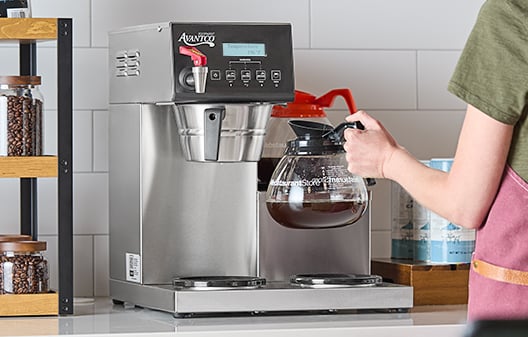
Credit: www.webstaurantstore.com
Frequently Asked Questions
How Expensive Are Commercial Coffee Machines?
Commercial coffee machines range from $1,000 to over $30,000. Prices vary by brand, features, and capacity.
What Is The Life Expectancy Of A Commercial Coffee Machine?
A commercial coffee machine typically lasts 7 to 10 years with proper maintenance and regular servicing.
How Much Should A Coffee Machine Cost?
A coffee machine typically costs between $100 and $3,000. Commercial models range from $2,000 to over $30,000, depending on features and capacity. Choose based on usage, quality, and budget for the best value.
Do Commercial Coffee Machines Need Plumbing?
Most commercial coffee machines need plumbing for water supply and drainage. Some smaller models use internal reservoirs without plumbing.
Conclusion
Choosing the right commercial coffee machine depends on your budget and needs. Prices range from a few hundred to tens of thousands of dollars. Consider machine features, size, and maintenance costs as well. A good machine saves time and serves quality coffee daily.
Think about your coffee volume and space before buying. Investing wisely ensures better service and customer satisfaction. Take your time to compare options and find the best fit. Quality coffee machines are essential for any successful business.
